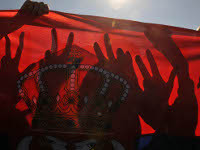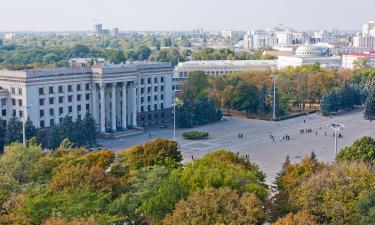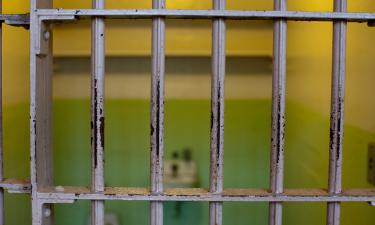Kosovo Serbs cry for help
Brussels intensifies diplomatic efforts for the implementation of the new agreement on Kosovo, signed by Belgrade and Pristina on April 19. The head of European diplomacy, Catherine Ashton, has recently said that the parties had been invited to take part in formal negotiations to be held on Tuesday. The Serbs oppose the agreement.

From the outset, the Serbian authorities have not hidden their interest in a speedy resolution of the Kosovo problem. In the end, Prime Minister Ivica Dacic and the leader of the self-proclaimed state of Kosovo failed to reach an agreement to settle the long-standing conflict. Thus, Belgrade expects to be able to join the European Union this summer. The consequences of the attempt to pass northern Kosovo under the control of Pristina is another question. Today, the majority of Serb communities of the region vehemently reject the agreements imposed by Brussels. The legislative assembly of northern Kosovo has recently demanded a referendum be held on the status of the province. Kosovo Serbs do not share the optimism of European officials, who consider the new agreement as a compromise. Shortly after the Serbian parliament approved the document, mass protests began in Kosovo.
Kosovska Mitrovica, Zvecan, Zubin Potok and Leposavic are home to about 50,000 ethnic Serbs. About 90 percent of Kosovo's population are Albanians, and only 10 per cent are Serbs. Local governments that do not enjoy official recognition of Belgrade and Pristina defend interests of the community in the province. On May 8, it was reported that Kosovo Serbs sent a letter to the Russian government with a request to defend the constitutional order in Kosovo and to help ensure compliance with resolution 1244 of the UN Security Council, which implies the preservation of the territorial integrity of Serbia. The Russian leadership traditionally takes a considered position on Kosovo.
Russia continues to oppose the recognition of the independence of the breakaway republic. However, the Serbian government deliberately makes concessions to Albanian separatists. In these circumstances, Moscow only accepts the official stance of Belgrade, which can not be ignored. The reaction of the opposition in Serbia to the adoption of the agreement on Kosovo also proved to be extremely negative. The leader of the Democratic Party of Serbia Vojislav Koshtunnitsa has recently announced that he was considering the actions of official authorities as betrayal of the national interests of the Serbs. On May 10th, a rally was held in Belgrade to protest against April decisions on Kosovo.
Organizers said that they were able to gather about 10,000 people in the center of the capital. The speeches were mostly aimed to expose the policies of the West in regard to the Serb minority of the region. "We are only one of you, ordinary Serbs, whom the world powers, and more recently, our government, forces to fight and protect the lives of our children, our homes and shrines," the chairman of Kosovo community Zubin Potok, Slavis Ristic said.
Influential members of the local Orthodox church joined the action. Sharp criticism was voiced of Prime Minister Ivica Dacic, whom they compared to Zoran Djindjic, who was killed as a result of a plot in 2003.
At the same time, President Tomislav Nikolic and Serbian Patriarch Irenaeus urged the Serbs to unite. "The best thing is when there is unity between those who decide on behalf of people and those who decide on behalf of the Church. We want to solve the problem of Kosovo and Metohija, so that there was no threat to either the Constitution or the sovereignty of Serbia, and no threat to the citizens of Kosovo and Metohija, particularly to those Serbs who live there," President Nikolic said.
This way or another, the events in Kosovo cast doubts on the success of the peace initiative of Brussels. Complicated negotiations may take years. Kosovo Serbs demonstrate determination to defend their economic and political interests in the region, despite attempts of pressure from Belgrade. Pristina continues to celebrate victory that was made possible owing to the support of the West. The agreement on Kosovo risks to undermine the stability of the entire region and trigger the growth of separatism in neighboring Macedonia. In any case, the price of Serbia's entry into the European Union can be too high.
Yuri Sosinski-Semikhat
Pravda.Ru
Subscribe to Pravda.Ru Telegram channel, Facebook, RSS!





